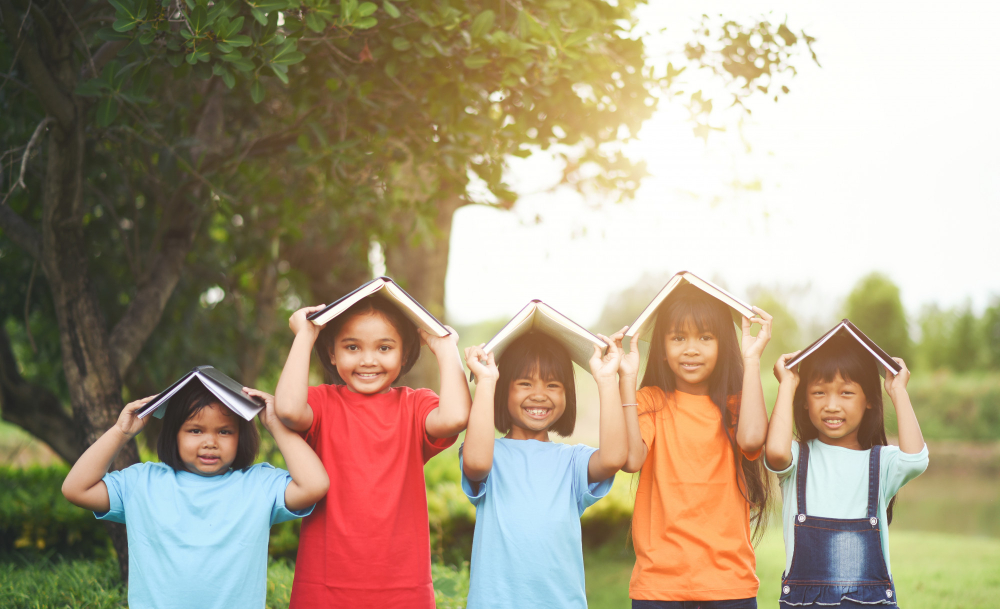India is an amalgamation of diverse communities existing together. These communities may vary in class or social strata, yet they share a common vision of taking the country forward. Children who aspire to achieve something meaningful and contribute to the nation, whether in the private or public sector, are an essential part of these marginalised communities. These young individuals harbour dreams of transcending all barriers, equipping themselves with the ability to bring about positive changes for themselves, their communities, and the entire nation. Education is one tool that can help them achieve this dream.
The Government of India, over the years, has made great progress when it comes to expanding educational access for children. In this effort, NGO for education in India, like Bal Raksha Bharat (also known as Save the Children), step in to support and ensure that schooling becomes accessible to children from all walks of life. Since its establishment in 2008, Bal Raksha Bharat has been wholeheartedly dedicated to providing children with access to education and other necessities, such as health & nutrition support, resilience building, protection from harm, and emergency relief services during disasters.
Thus, to understand the workings of NGO for education in India, this article sheds light on the innovative approaches implemented by Bal Raksha Bharat.
Primary Goals of NGO for Education in India
Education-focused NGOs such as Bal Raksha Bharat harbour a compelling vision that goes beyond merely imparting knowledge. They firmly believe in helping the Government of India in creating a society where children, irrespective of their background, are provided with equal opportunity to access quality education.
Here are some of the overarching goals that drive Bal Raksha Bharat’s efforts to ensure that children’s right to education is safeguarded and upheld.
-
Holistic Learning Process
Through collaborative efforts with children, teachers, and the Government of India, Bal Raksha Bharat aims to enhance the curricular and pedagogical structure of school education, making it responsive and relevant to the ever-evolving demands of the modern world. By nurturing a holistic learning environment, the organisation works towards empowering students to become confident, adaptable, and socially responsible individuals.
-
Safer School Environment
Bal Raksha Bharat prioritises a safe school environment, adopting an all-hazards approach to protect children. By implementing a ‘whole school’ strategy, the organisation engages the socioecological model, including children, caregivers, teachers, school management, communities, civil society, and government authorities, to ensure immediate and lasting improvements in children’s safety and protection in and around schools.
-
Equitable and Inclusive Education
The goal of inclusive and equitable education is not only essential in its own right but also plays a pivotal role in creating a more just society. While the policies made by the Government of India have made commendable progress in narrowing gender and social category gaps across all school levels, there is still a need for NGOs, just like Bal Raksha Bharat, to step forward and support the government policies and create awareness around children’s right to education.
These objectives highlight the fundamental challenges in children’s access to education, which NGOs like Bal Raksha Bharat seek to address. These are some of the numerous initiatives undertaken by the organisation to ensure that children from less privileged backgrounds can exercise their fundamental right to education.
A Story of Hope
Bal Raksha Bharat acknowledges the pressing need to address these disparities and actively works to bridge the education gap through well-designed interventions. Samodra’s journey is an inspiring example of the transformative impact of Bal Raksha Bharat’s involvement in promoting inclusive education.
Coming from a remote village with limited educational opportunities, Samodra faced opposition from her parents when she expressed her aspirations to pursue higher studies beyond the primary level. However, her determined grandmother encouraged her to participate in a motivational camp organised by Bal Raksha Bharat in collaboration with KGBV. The camp proved to be a turning point for Samodra, encouraging her to enrol in KGBV, even though her parents initially resisted the decision. Yet, with constant support from the project staff and her grandmother, Samodra’s parents eventually embraced her pursuit of education. After graduating with exceptional marks, she fulfilled her dreams by pursuing nursing studies.
Samodra’s remarkable journey underscores the immense significance of inclusive education, and she ardently hopes that more schools will adopt Bal Raksha Bharat’s empowering approach to pave the way for a brighter future for all children.
Conclusion
Bal Raksha Bharat is one NGO that has helped numerous children like Samodra fulfil their dreams, and their success stories are not just isolated instances but symbolic of a much larger movement of hope and resilience sweeping through the nation. However, the force behind this change comes from the united efforts of the government and various NGOs that are persevering to help those who need it the most.
As a society, we must continue to rally behind these NGOs, supporting their noble endeavours through donations and volunteering. By doing so, we can reaffirm our commitment to building a nation where every child has an equal opportunity to dream.




